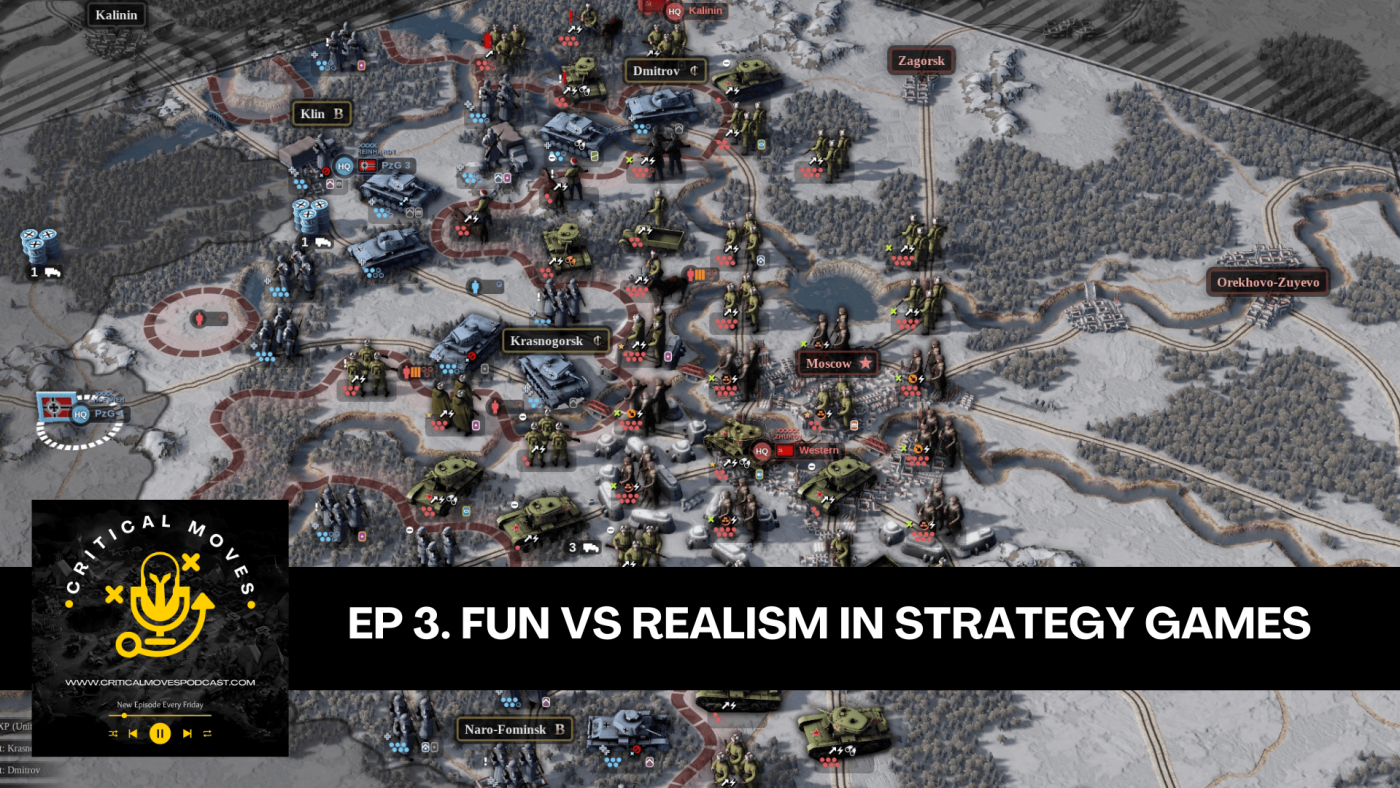This episode dives into the balance between fun and realism in strategy games, exploring how developers tackle historical accuracy, creative liberties, and player expectations. Hosted by Joe, Tim, and Shane, the conversation covers examples from personal favourites like Stellaris, War in the Pacific, Victoria 3, and Total Warhammer.
Here’s what the episode explored:
- Historical vs. ahistorical gameplay, including how games like War in the Pacific let you rewrite history while maintaining realism through order of battle restrictions.
- The role of consistency in game worlds, even in fantastical settings like Total Warhammer.
- The pitfalls of chasing realism, such as mechanics that sacrifice fun for accuracy.
- Why player choice and creative decision-making are central to long-term engagement.
Joe kicked things off with his recent Stellaris playthrough, role-playing the Imperium of Man from Warhammer 40K. This sparked a broader discussion about balancing narrative freedom with grounded mechanics. Shane emphasized how games like War in the Pacific combine historical authenticity with the flexibility to go off-script, allowing players to craft their own campaigns while staying grounded in realistic constraints.
Tim noted how Paradox games like Victoria 3 and Crusader Kings immerse players in decision-making, teaching history through context rather than rote facts. However, the group also highlighted frustrations, such as poor AI behaviour in Crusader Kings 3, which can break immersion when allies act irrationally.
The hosts debated the fine line between fun and realism, citing examples of mechanics that add depth without becoming cumbersome. Tim critiqued overly gimmicky systems, like those in King’s Order, that prioritize realism to the detriment of player engagement. Joe added that realism should enhance fun, not detract from it, sharing a story about quitting an MMO that prioritized tedious realism over enjoyable gameplay.
Shane rounded out the discussion with his thoughts on Total Warhammer and how it blends imaginative settings with logical mechanics. The game’s attention to detail – such as unit size and weight affecting combat – provides a sense of realism within a fantastical world.
The episode concluded with advice for developers: focus on intuitive systems that make sense within the game’s world and prioritize fun over strict realism.
You can find this episode on on Spotify, Amazon Music, Apple Podcasts, or YouTube.
Next week, the podcast tackles historical accuracy in map design—when to stick to the facts and when to let creativity take over. Don’t miss it!


